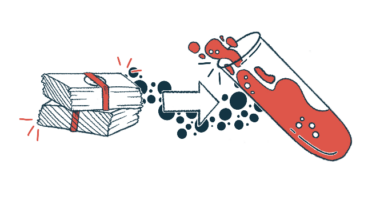Chiesi Buys Monoclonal Antibody Portfolio With Potential to Treat PAH

Chiesi Farmaceutici has acquired the worldwide rights to a number of investigational antibodies that may be able to treat pulmonary arterial hypertension (PAH) from the developer, Allinaire Therapeutics.
All of the antibodies act against the endothelial monocyte-activating polypeptide (EMAP II), a pro-inflammatory molecule that is thought to contribute to cell death and inflammation in PAH.
These antibodies are currently in the early phases of being evaluated as a potential PAH treatment, Chiesi reported.
“This agreement is further evidence of Chiesi’s commitment to seek out novel treatments for conditions with a high unmet medical need such as PAH,” Thomas Eichholtz, PhD, head of Global R&D at Chiesi, said in a press release.
“We believe that an anti-EMAP II [antibody] is a promising novel approach for the treatment and slowing of disease progression for patients with PAH,” Eichholtz added.
PAH is a rare type of pulmonary hypertension that arises when the blood vessels that transport blood to the lungs are narrowed. As a consequence, the blood pressure in these arteries is increased, making the heart work harder to pump blood.
In PAH, dysfunction of the cells that line these blood vessels — called endothelial cells — and inflammation are thought to play important roles in disease progression.
EMAP II is an inflammatory molecule that is involved in endothelial cell function, inflammation, and cell death. Previously, researchers at Indiana University and National Jewish Health, in collaboration with Allinaire, showed that EMAP II plays a significant role in the progression of cardiovascular diseases, including PAH, chronic obstructive pulmonary disease, and viral-induced lung injury.
It is thought that in blocking EMAP II’s activity, the experimental antibodies may be able to delay or reverse PAH progression.
This could offer an advantage over therapies that act to ease existing symptoms, but don’t address the underlying causes of the disease, Chiesi noted.
“We have made excellent progress in our anti-EMAP II [monoclonal antibody] program at Allinaire, working with a multi-disciplinary team of experts in EMAP II science, biologics, and cardiopulmonary disease therapeutics,” said Douglas W.P. Hay, PhD, CEO and chief scientific officer of Allinaire.
“We are extremely excited to be partnering with Chiesi to advance this novel class of medicines,” Hay added.
Allinaire was originally founded by BioMotiv in 2016, and has licensed the technology to produce the antibodies from Indiana University.
As part of this new agreement, Allinaire will receive an upfront payment from Chiesi, with additional payments when certain developmental milestones are met. If any of the antibodies eventually reach the market, Allinaire will also get royalty payments from the sales.









